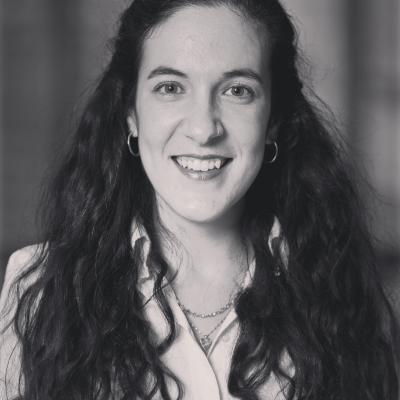
Aug 2014 – Aug 2018 UNIVERSITY OF SÃO PAULO
PhD in Toxicology
Thesis title: Investigation on the relationship between violent death, cocaine abuse and single nucleotide polymorphisms
Sep 2012 – Sep 2013 THE UNIVERSITY OF GLASGOW
Masters in Forensic Toxicology
Dissertation title: Evaluation of liquid phase microextraction techniques in forensic toxicology
Sep 2008 – Aug 2012 GLASGOW CALEDONIAN UNIVERSITY
Graduation in Forensic Investigation
Dissertation title: Evaluation of the antimicrobial effects of colloidal silver
Ana Pego obtained her undergraduate degree in Forensic Investigation, with a first-class honours, from Glasgow Caledonian University (in addition to an exchange period of 6 months at Tampere University of Applied Sciences), in 2012, where she has developed a final-year project on the properties of colloidal silver and their implementation for the production of antimicrobial polymers to be used in children's toys. After that, she decided to specialize in Forensic Toxicology and was awarded her masters degree from The University of Glasgow in 2013 where she graduated with merit and worked on evaluating different liquid-phase microextraction techniques (DISDME, LLLME and LPME) in forensic toxicology. After that, Ana has worked for companies such as Scientific Analysis Laboratories (nowadays Concept Life Sciences) and Charles River Laboratories. She has then decided to pursue her academic career and obtained her Ph.D. from the University of Sao Paulo in 2018, after spending 3 months at the University of California, Los Angeles. During those 4 years, Ana has worked on investigating the relationship bewteen violent death, cocaine abuse and SNPs where she has worked with postmortem cases and analysed both hair and blood using GC-MS and LC-MS/MS with a variety of extraction techniques. That same year, Ana joined Avans University of Applied Sciences, where she concluded her Post-Doc in 2020, after working on a project entitled: 'SherLOK: profiling of individuals through forensic analysis and imaging of hair'. During that time she has spent 6 months as a visiting scholar at Maastricht University developing a MALDI-TOF method for the analysis of single hair strands to test for capsaicins. That same year of 2020, she started working for the Dutch Screening Group as Head of Development. Nowadays, Ana works as an Assistant Professor in the Sciences Deparment at John Jay college of Criminal Justice, City University of New York.
Ana's line of research involve forensic toxicology with the development of new analytical procedures involving microextractions (such as LPME and QuEChERS), alternative matrices and novel psychoactive substances. She has a vast experience with hair analysis (both with LC-MS/MS and MALDI-TOF), postmortem toxicology, determination of drugs of abuse and method validation.
Ana has presented in various international conferences and was an invited speaker in several occasions. She has won 4 different grants for both studying and presenting her work abroad.
Current courses
Undergraduate
TOX 416 Analytical Toxicology (Lecture & Laboratory)
TOX 425 Techniques of analytical toxicology
TOX 426 Analytical and Quantitative Toxicology Laboratory
1. The International Association of Forensic Toxicologists - TIAFT
2. Society of Forensic Toxicologists – SOFT
3. American Academy of Forensic Sciences – AAFS
4. Portuguese Association of Forensic Sciences - APCF
5. Brazilian Society of Toxicology – SBTOX
6. Society of Hair Testing – SoHT
7. International society for the study of emerging drugs
- Evaluation of artificial drug incorporation into hair for the production of quality control samples: https://doi.org/10.22456/2527-2616.118887
- Essential oil-based dispersive liquid-liquid microextraction for the determination of N,N-dimethyltryptamine and β-carbolines in human plasma: A novel solvent-free alternative: https://doi.org/10.1016/j.talanta.2020.121976
- SNPs from BCHE and DRD3 genes associated to cocaine abuse amongst violent individuals from Sao Paulo, Brazil: https://doi.org/10.1016/j.forsciint.2020.110511
- Cocaine toxicological findings in cases of violent death in Sao Paulo city - Brazil: https://doi.org/10.1016/j.jflm.2018.08.005
- Determination of cocaine and its derivatives in hair samples by liquid phase microextraction (LPME) and gas chromatography-mass spectrometry (GC-MS):10.1016/j.forsciint.2016.12.024
Honors
1. Merit award by the University of Glasgow (2013)
2. First Class Honors award by Glasgow Caledonian University (2012)
Awards
1. Faculty COVID Recovery Award (2023) - fully paid Faculty Success Program offered by the National Center for Faculty Development and Diversity (NCFDD)
3. Santander Mobility scholarship award - International exchange (2017)
4. The International Association of Forensic Toxicologists (TIAFT) award - Conference Travel Winner (2016)
5. The International Union of Toxicology (IUTOX) and the Brazilian Society of Toxicology (SBTOX) award - Fellowship Travel Award Winner (2015)
6. Coordenação de Aperfeiçoamento de Pessoal de Nível Superior (CAPES) award - Full financial support during PhD studies (2014 – 2018)
7. ERASMUS scholarship award - Studying and living abroad (2010)
8. Student Awards Agency for Scotland (SAAS) scholarship award - Fully paid undergraduate studies (2008 - 2012)
- Hair analysis and decontamination protocols.
- Development and validation of forensic toxicology-related methodology.
- Analysis and interpretation of xenobiotics in biological specimens (antemortem & postmortem).
- Determination of drugs of abuse using chromatography and mass spectrometry instrumentation.